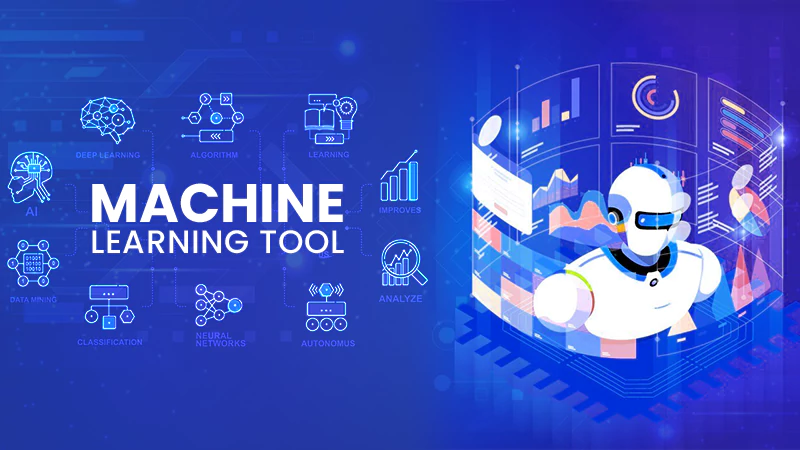The Future of Enterprise Content Management Systems: Trends and Predictions
ECM is touted to be a transformative tool for organizations grappling with the escalating volume of content creation. As the world undergoes a profound digital transformation, ECM trends are set to redefine how businesses manage content, streamline workflows, and foster collaboration.
This article explores the imminent future of enterprise content management system, offering insights into emerging trends and predictions that promise to shape the industry.
Anticipated trends in ECM include the integration of artificial intelligence, a surge in cloud deployment, the rise of vertical customized solutions, heightened emphasis on security and data privacy, and increased integration with other business applications.
The global enterprise content management market, according to projections by globenewswire, is expected to reach a substantial USD 29.64 billion by 2028, reflecting a noteworthy CAGR of 14.3%. This projection serves as a compelling indicator that ECM technology is becoming indispensable for businesses across industries committed to effectively managing the complete lifecycle of their content and documents.
Trends in Enterprise Content Management Systems
As we stand on the cusp of digital evolution, the future trends for Enterprise Content Management (ECM) are poised to redefine how organizations handle their documents and digital assets. Let’s delve into these transformative trends that are set to shape the landscape of ECM.
1) AI-Integrated ECM
Traditionally, ECM systems have been the backbone of centralized document storage. However, the integration of Artificial Intelligence (AI) is ushering in a new era, expanding the role of ECM beyond mere storage.
With intelligent automation capabilities, organizations can now automate document-centric processes, facilitate collaboration, and annotate documents digitally in real-time.
AI is making its mark in document processing, intelligent search, and automating actions based on predefined business rules, reducing manual efforts and enhancing operational efficiency.
One of the key aspects of AI technology is generative AI. Generative AI has changed various B2B software, and Enterprise Content Management Systems are not an exception.
It is assumed that we will get to see constant generative AI updates in ECM systems throughout 2024.
2) Cloud Deployment
The imperative shift towards cloud deployment emerges as a key trend in ECM. Accentuated by the lessons learned during the COVID-19 pandemic, organizations now prioritize the accessibility of business documents anytime, anywhere.
Embracing a cloud-ready application ensures availability and offers significant cost savings by reducing expenses associated with hardware, software, and updates.
Modern cloud solutions provide flexibility, allowing organizations to select and pay for specific capabilities tailored to their needs.
Post covid, most organizations are shifting towards a hybrid working model, in this scenario a cloud-based ECM software would be a helpful choice to work smoothly in hybrid mode.
If an organization is looking to purchase ECM software, they should keep in mind a variety of factors including generative AI, cloud-based, workflow automation, etc.
These considerations are very vital to complete business operations smoothly and keep up with the industry trends.
Interesting Facts
This report shows that the market size of the global enterprise content management market is expected to be valued at 93.76 billion USD by 2025.
The compound annual growth of this market is assumed to be 15.6% from 2017 to 2025. As the government increases data regulation, the role of enterprise content management systems is also increasing.
3) Vertical Customized Solutions
A growing trend in ECM is adopting vertical customized solutions tailored to specific industries such as construction, finance, and healthcare. Vendors recognize the need for industry-specific ECM capabilities, creating customized versions to address unique document management requirements.
For example, formal document transmission, known as transmittals, is a main concept in the construction industry and tailored ECM solutions are designed to manage these industry-specific document flows seamlessly.
4) Enhanced Security and Data Privacy
Securing business data is paramount in the digital age, and ECM vendors are stepping up to the challenge. The focus on enhanced security and data privacy involves implementing robust encryption methodologies, access controls, and audit trails.
As technology evolves, ECM adapts, safeguarding confidential documents, customer information, financial records, and intellectual property.
Automation tools within content platforms assist organizations in meeting retention requirements identifying and handling sensitive material to mitigate compliance risks.
5) Integration with Business Applications
Integration is key in an interconnected business landscape, and ECM is no exception. Seamless integration with Enterprise Resource Planning (ERP), Customer Relationship Management (CRM), and other productivity applications is vital for streamlined information sharing, automated processes, and heightened productivity.
Do You Know?
72% of large organizations have more than 5 ECM systems and 25% have more than 5.
Above 6% of organizations use open source ECM systems and this number is expected to double in the next 2 years.
6% of businesses use internal corporate clouds and less than half of them use public clouds.
Future of Enterprise Content Management Systems
Envisioning the future of content management unveils a landscape characterized by the orchestrated deployment of cutting-edge technologies.
Organizations are set to embark on a journey to decipher the locations of their content, striving to eliminate redundancies in the process.
The paradigm is shifting from fixating on content-related challenges to a more holistic perspective, recognizing that content is intricately woven into broader business problems.
Content Service Providers (CSPs) will play a pivotal role in supporting digital transformation initiatives and facilitating the adept management of content.
The emergence of federated records management tools, designed to manage content in its existing locations rather than consolidating it, will mark a significant stride. The effectiveness of this approach will be further heightened as machine learning tools evolve to classify records without human intervention.
The upcoming decade is poised to embrace a collaborative synergy of multiple technologies within ECM.
The focus will shift from imposing products into the ECM toolset to orchestrating the harmonious integration of diverse ECM tools that align with organizational missions.
This approach ensures tangible results without necessitating an abrupt overhaul of existing systems.
Organizations can adapt at a pace tailored to the needs of their workforce and clientele, fostering a dynamic and sustainable evolution in content management.
How to Switch from iPhone to Android: Proven…
How to Perform Data Recovery on Hard Drive
All-Inclusive Guide on RTasks Login at RTasks.Net!
The Power and Pitfalls of Automated Customer Service
Artificial Intelligence and Machine Learning Trends in 2024
How Modern Technologies Can Help Us in Our…
Latest Technologies in the Fashion Industry
How Digital Technologies has Changed the Paradigm of…








